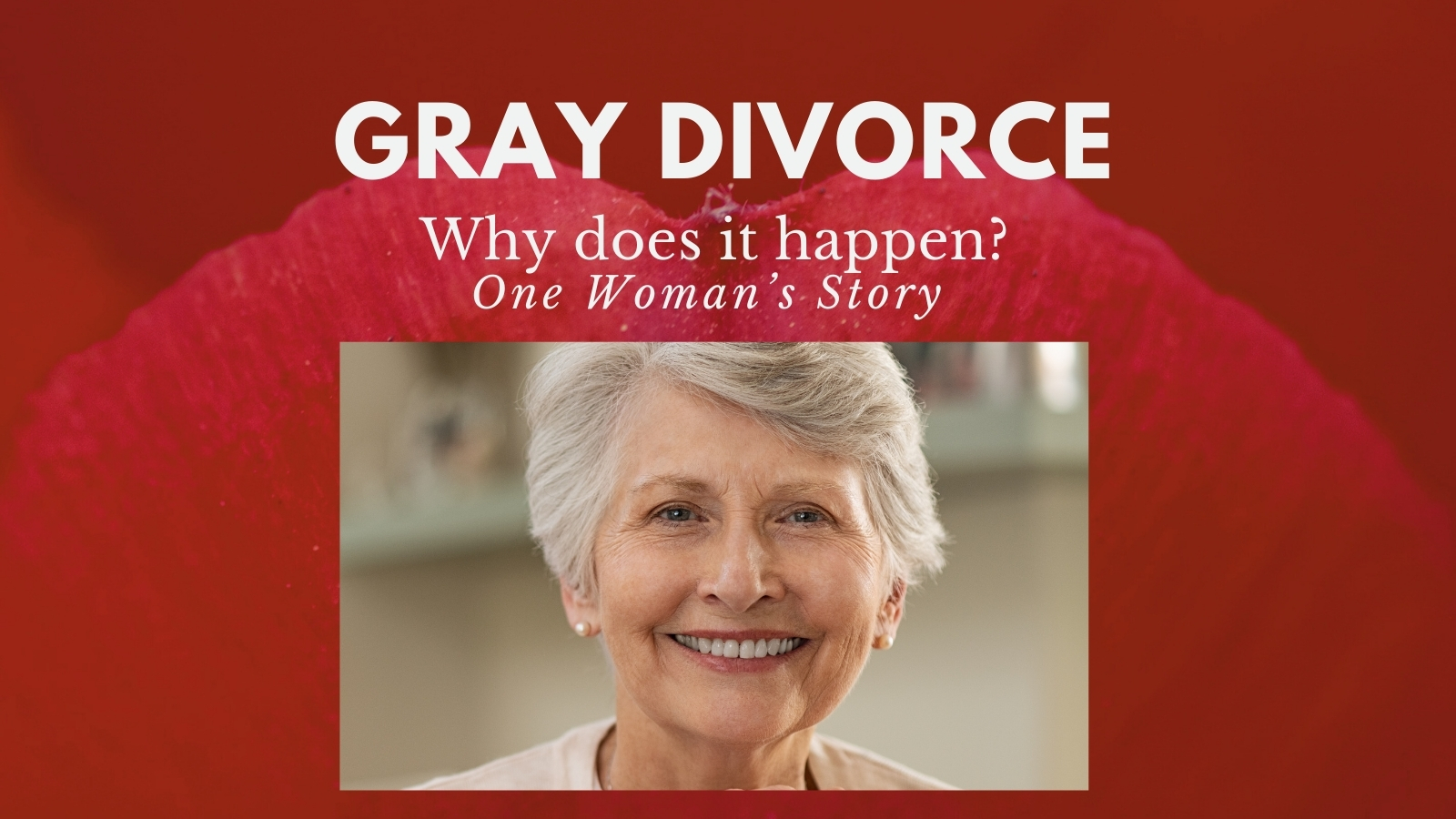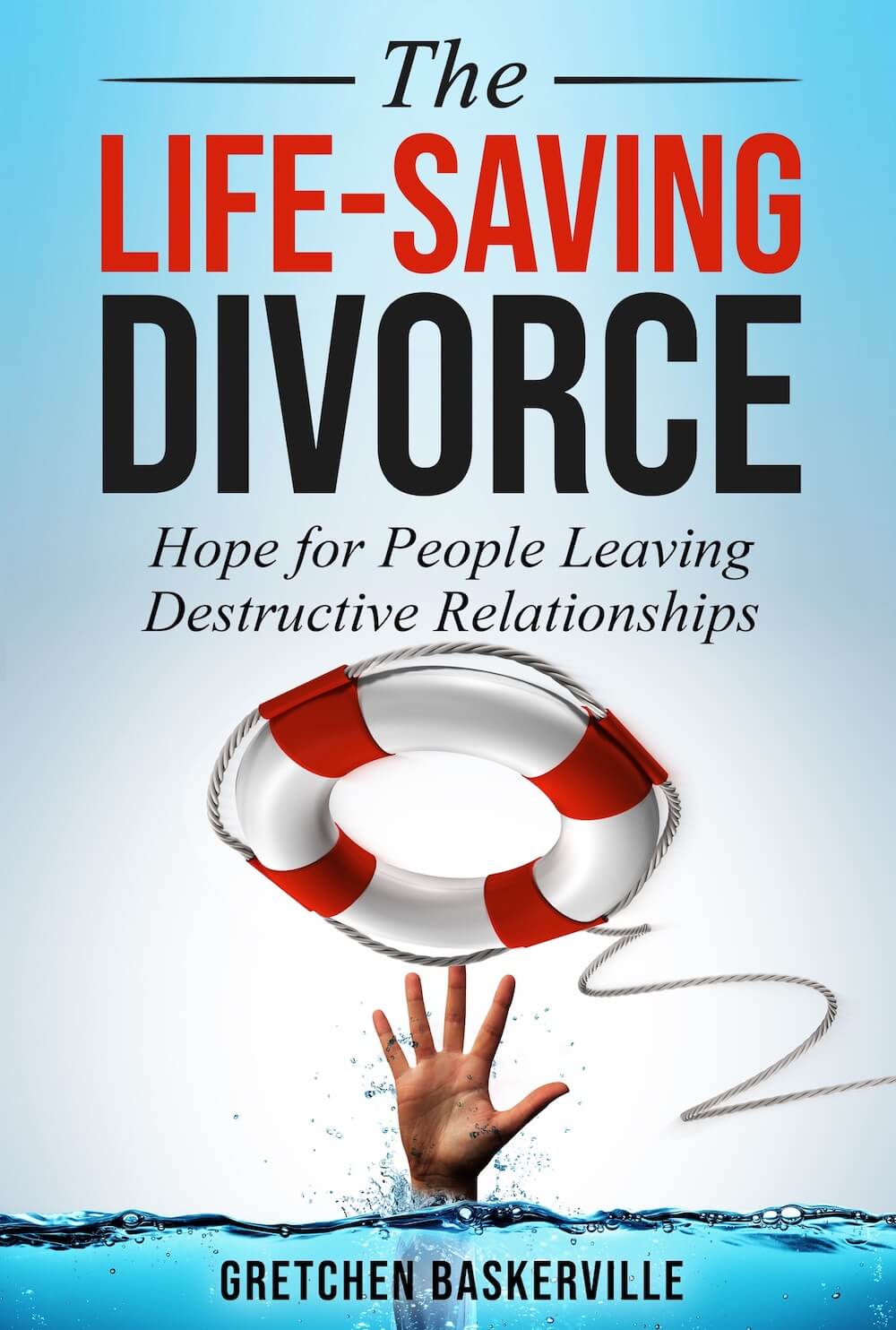Why Do So Many Retirees and People in Long Marriages Get a Gray Divorce?
While interviewing Christian divorcees for my book, I met two women over age 65 who shared their stories with me. You’ll see from their own words why vulnerable senior citizens would be willing to risk their futures to escape from a destructive spouse.
I often see online articles criticizing older couples who divorce, pointing out the financial risk it brings. Financial planners wonder why older couples would get a “gray divorce” just when they need to focus on cutting costs and conserving their resources for retirement. However, my interviews with divorcees over 50 reveal several compelling reasons: once the children leave home, many spouses wake up to the reality that they are alone with someone who isn’t committed to making the marriage safe and respectful. In fact, many seem to be committed to undermining the marriage by being abusive, unfaithful, or addicted to drugs or alcohol.
Below, in this post, we explore the stories of two Baby Boomer wives who decided to divorce their husbands of more than 30 years—men who silently harbored contempt and resentment toward them and their marriage vows.
For years, when the children were younger, they provided distractions and purpose in the home. The kids were also silent witnesses to the disrespectful dynamics. But once they’ve moved out, the distractions are gone, and the cracks in the marriage become impossible to ignore.
When children leave the nest, some spouses are left with a partner who treats them with disdain or indifference, sometimes to the point of feeling trapped with someone who doesn’t seem to care whether they live or die. At this stage, many come to a sobering realization: “I can’t spend the rest of my life with this person.”
As Baby Boomers enter retirement, “Gray Divorce” has become a growing trend. In 2010, 1 in 4 divorces involved someone aged 50 or older, and this rate is expected to rise—even as the overall divorce rate in the U.S. continues to decline.[1] Some researchers have admitted they don’t understand why this is happening, at least those who limit their study to big general population surveys. They cannot pin it on the “empty nest” or one spouse’s health or retirement. The problem is that these sets of data don’t include questions about infidelity, alcoholism, financial abuse, violence, coercion, etc. They ask about “happiness” and “health” and “income,” but not about the types of conflicts that an individual in the home might cause. Fortunately, other studies do ask about this, such as Rutger’s professor Dr. J. E. Crowley’s studies HERE and HERE, and Dr. Montenegro’s study HERE (page 21).
Couples who divorce after 25 or 30 years of marriage often cite serious breaches of trust, not just boredom or dissatisfaction. Women commonly list reasons such as infidelity, addiction (to alcohol, drugs, or pornography), verbal and emotional abuse, or neglect. Men also divorce for infidelity, and often cite their wives’ excessive spending, unwillingness to work, or disagreements over how to handle relationships with adult children as reasons for divorce.[3] Many report enduring these issues for years, clinging to the hope that things would improve, before finally deciding to end their marriages.[2]
Among people of faith who divorced after 50, many shared with me their stories of enduring decades of infidelity or abuse—often because they believed they were staying “for the sake of the children.” They had been taught the myth that divorce universally destroys children, and they didn’t want that guilt on their conscience.
Why didn’t they leave sooner? Many pointed to the messages they received from their churches, which emphasized enduring hardship in marriage as a form “holiness over happiness.” Others said they were so consumed with raising children that they couldn’t take the time to evaluate their own pain or see the abuse for what it was.
They knew something was deeply wrong but couldn’t articulate it.
One woman, reflecting on her 30-year marriage, shared how she gradually realized the truth after becoming an empty-nester. Downsizing their home revealed a deeper emotional truth: the man who told her he loved her daily actually felt disdain and contempt for her.
I was a shell of a person by this point, but we moved to a different house when the last kid left, downsized, and I really noticed it when the kids left. We had homeschooled, and I had no idea what an emotional buffer they were.
Without kids providing emotional zest and distraction, the emotional barrenness of the relationship became starkly apparent.
My husband’s disdain and contempt became impossible to overlook.
And this is the man who prayed with me almost every night, regularly read his Bible and said he loved me almost every day.
So when you hear a pastor claim you have a .03% chance of getting divorced if these things are present in your life, well, I’ll let you know that I’m the .03%. He looked so morally good and respectable; he was an elder in the church.
I did not realize that he had started a smear campaign behind my back for years. My daughter said, “Mom, Dad so undermined, devalued, and invalidated you our whole growing up that if we hadn’t homeschooled, I don’t think we would’ve given you any credence.”
I had no idea I was sleeping with the enemy.
It seems in retrospect he did everything he could to make me leave the marriage he didn’t want and then blamed me for divorcing him. He told me how miserable he was, but he would “never go through the public humiliation of a divorce.”
When he was able to present himself as the victim of a crazy wife, I got to bear the shame and blame while he received sympathy [thanks to] the smear campaign I did not realize he had been waging for many years to our children, family, church, and community… This man is so smooth. I don’t know how to describe it to you…
[Now] I feel far less lonely than when I was married. There’s something horrible about living every day with someone who has contempt for you.
As an interviewer, I was surprised by how many stories I heard like this. It is more common than you might think to have an abusive spouse who frequently proclaims their undying love. This article includes the first-person story of a missionary wife married to a serial cheater who told her fifty times a day he loved her (or find her story in The Life-Saving Divorce book, pages 196-197). It is part of the masquerade to cover up their true identity and behavior behind the scenes.
When the kids have left home, sometimes the mask slides off, and the truth is revealed.
Some empty-nesters use their newfound freedom to go to counseling and improve their problem-solving and conflict management. For some people, this saves their marriage. By learning to set boundaries and speak in a way that they will be heard, the victim communicates in a way the abuser finally understands. The abuser doesn’t call the shots anymore. Their spouse no longer lives on Planet Me. In some cases, the abuse stops.
But as this second woman’s story shows, finding her voice and (for the first time in more than thirty years of marriage) asking questions, led her to realize her boundaries had been violated and trampled, and she was no longer willing to look the other way and ignore the evidence of her husband’s many affairs. Without children at home, it was easier for her to leave.
[For a while I told myself,] I’m just going to pretend like nothing’s happening, and I’m just going to carry on and have a happy marriage. I had learned to protect myself by disassociating and never confronting him, so we actually got divorced never having had one fight…
I think because of my therapy, and [because I was challenging] him, he started coming home at a normal time; he started taking me out on walks and things; he started paying attention to me, so I think he was doing that whole thing that abusers do to try to keep you hooked.
[He started confessing his long string of infidelities, some of which were recent,] and he thought that would appease me… All of a sudden I was sitting there, and I realized I had no clue who I was married to. And that was frightening. That was very frightening. I just realized I did not know who this man was…
[The] night that he told me, I lost it. All I could think of was committing suicide…
[We were out of town and] we faked our way through the weekend. I was just out of my mind, I was so shocked and so overwhelmed.
Later, I said if I hear anything more that he’s done to me, it’ll crush my soul. I can’t… I can’t hear it, and I’m filing for a divorce. (For this woman’s full story, click HERE.)
She left. Today she has found happiness and peace, and she ministers to other Christian women who are married to serial adulterers.
When the children grow up and leave, or when a pandemic shuts down the workplace, and suddenly you find yourself secluded in a home with someone who doesn’t care about your wellbeing. You’re vulnerable, on high alert, fearful, and walking on eggshells, because behind closed doors, there’s no one to witness what happens, and no one to provide a distraction.
I used to wonder why people would get a “Gray Divorce,” a phenomenon that leaves tax experts scratching their heads as to why someone would jeopardize their financial future in their 60s, 70s, or 80s.
But you and I know why they leave. They needed a Life-Saving Divorce.

Footnotes:
1 Susan Brown, “The Gray Divorce Revolution: Rising Divorce Among Middle-Aged and Older Adults, 1990-2010,” The Journals of Gerontology Series B Psychological Sciences and Social Sciences 67, no. 6 (Oct. 2012): 731-41.
2 J. E. Crowley, “Gray Divorce: Explaining Midlife Marital Splits,” Journal of Women Aging 31, no. 1 (Jan-Feb 2019): 49-72, accessed 1/3/20, https://www.ncbi.nlm.nih.gov/pubmed/29210619.
3 Crowley, “Gray Divorce.” See also her article: “Baby Boomers Are Divorcing for Surprisingly Old-Fashioned Reasons,” Quartz (5/8/18), accessed 9/11/19, https://qz.com/1272362/baby-boomersare-divorcing-for-surprisingly-old-fashioned-reasons/. Crowley is Professor of Public Policy at Rutgers University, where she specializes in family law in the United States.



 :
:
 Buy PDF
Buy PDF